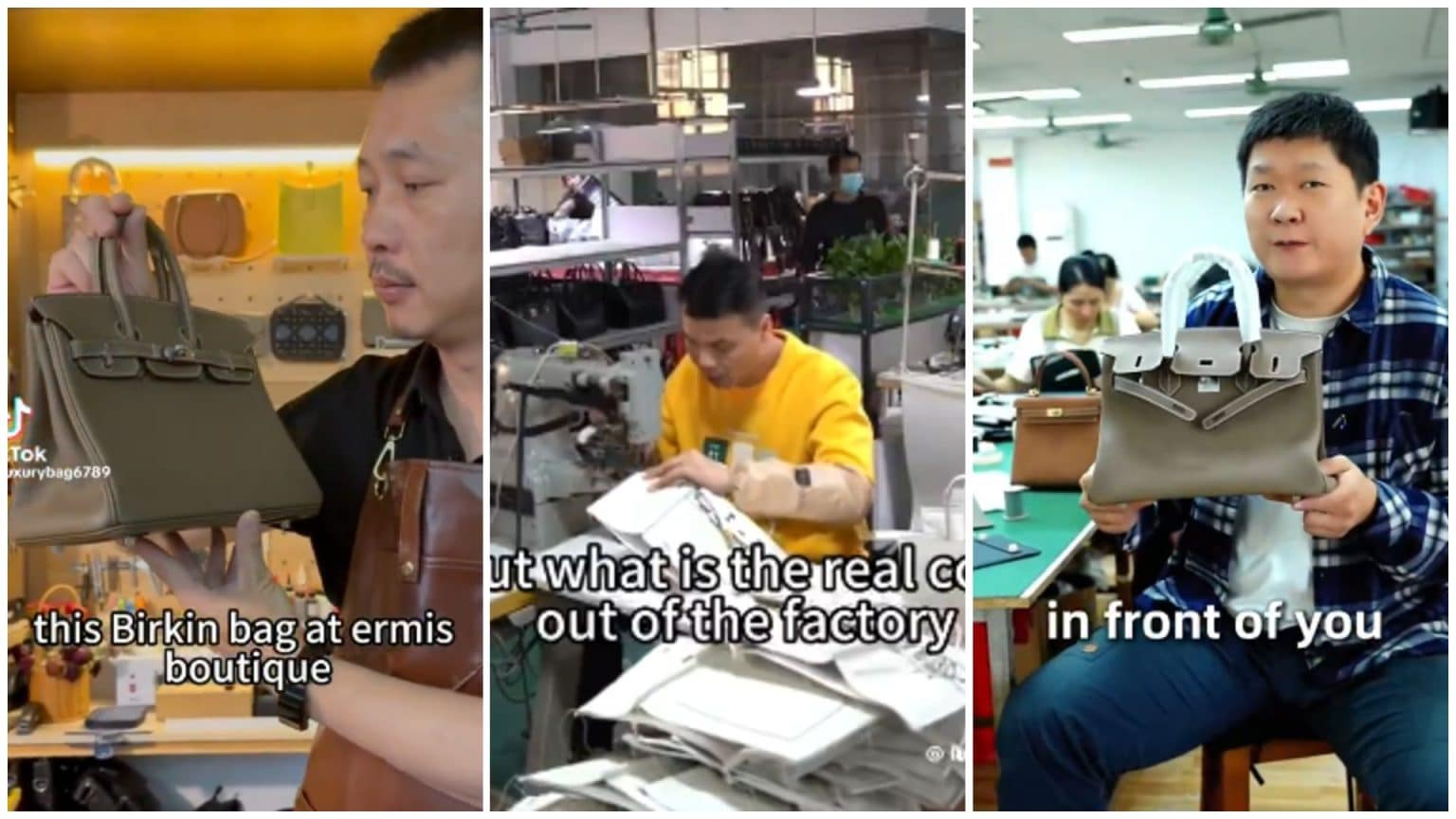As the U.S.-China trade war escalates, China is responding boldly by selling luxury goods directly to consumers at significantly reduced prices.
From handbags to apparel and cosmetics, Chinese manufacturers offer high-quality products often made for top brands like Birkin and Lululemon for a fraction of retail costs. Social media platforms like X and TikTok are buzzing with videos from suppliers showcasing their wares, prompting debates about the value of brand logos and the future of luxury shopping.
80% of Gucci made in China. Hermes bags cost $1000USD. I wanna throw up pic.twitter.com/eufsrLDxMb
— Brittany Rae (@legitbrittFLA) April 13, 2025Chinese manufacturers bypass traditional retail by selling directly to consumers, a response to U.S. tariffs reaching up to 145%. On X, American TikTok users have shared clips of suppliers highlighting products crafted for luxury brands. These items, often logo-free, boast the same materials and craftsmanship but cost significantly less. For example, a Birkin-style bag retailing for $34,000 has a production cost of about $1,400, with suppliers urging buyers to skip the brand markup.
Viral Videos Spark Debate
Social media is amplifying China’s pitch. One TikTok user shared a video of a supplier offering Birkenstock-style footwear, noting, “Even with tariffs and shipping, it’s cheaper than buying through U.S. retailers.” Another clip showcased Lululemon-like items, typically $100, sold for $5-6. A user on X remarked, “China’s exposing how big brands profit off logos.” These videos emphasize skilled labour and quality materials, challenging the stigma of “Made in China” goods.
Now every girl can afford an Hermes quality bag – without the logo of course.
This Tiktok account "luxurybag6789" is showing you the Bill of Material (BOM) cost of making a Hermes bag retailed at USD 38,000. The actual cost out of the factory is only USD 1,400!. The difference… pic.twitter.com/xgw1Ed3CQe
— Ignis Rex (@Ignis_Rex) April 14, 2025Some suppliers share detailed production process videos to build trust, countering perceptions of inferior quality. Others sweeten the deal with free global shipping or coverage of import duties. This transparency and affordability resonate with consumers, especially as China’s Ministry of Commerce pushes back against U.S. tariffs, recently calling exemptions on electronics like smartphones a “small step.”
The U.S. and China are locked in a fierce trade battle, with China imposing up to 125% duties in retaliation for U.S. tariffs. Many argue that China’s manufacturing edge and low prices give it an advantage online. Some speculate that direct sales could become the go-to for affordable luxury if tariffs climb further, raising questions about why consumers pay retail prices when alternatives exist.






